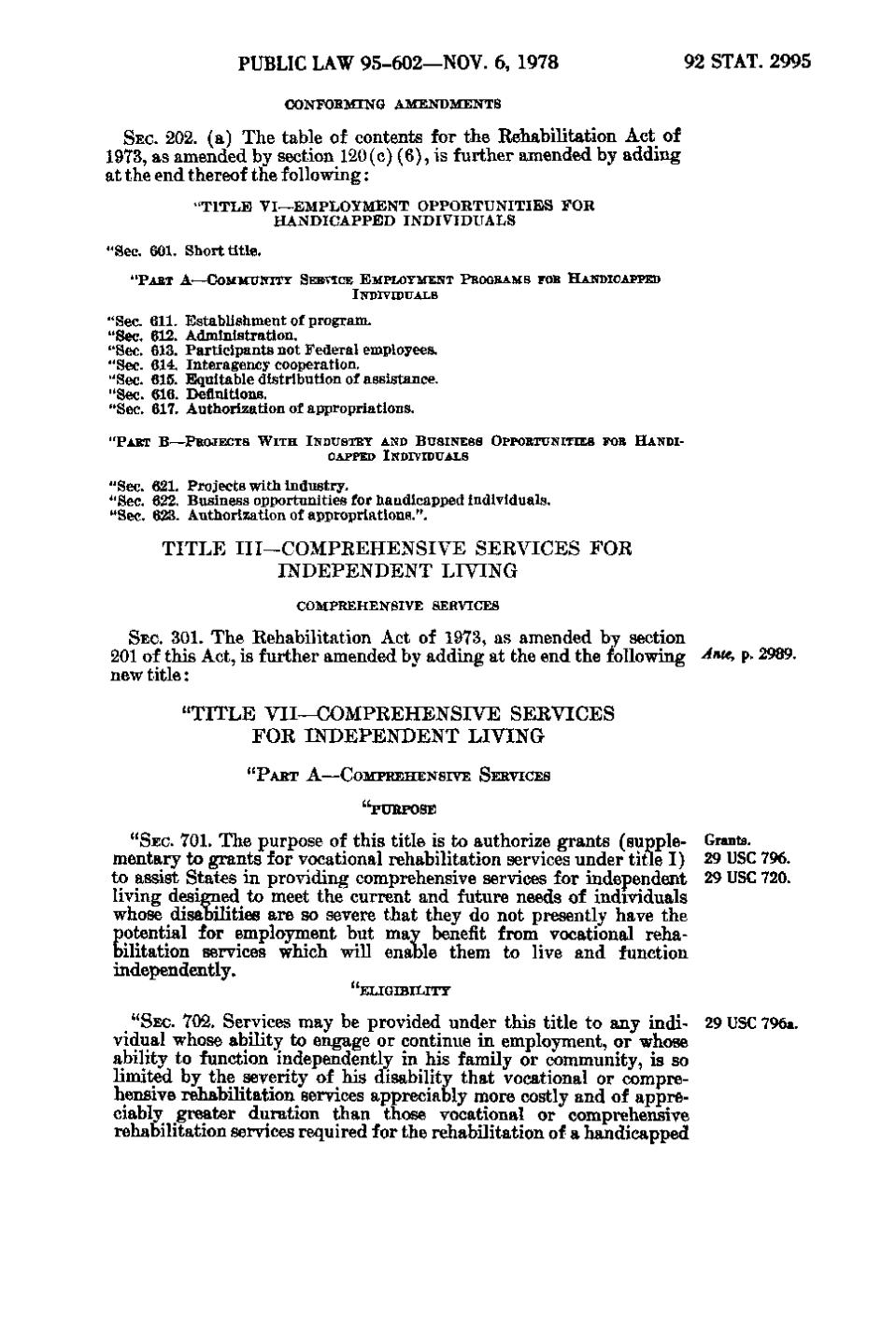PUBLIC LAW 95-602—NOV. 6, 1978 CONFORMING
92 STAT. 2995
AMENDMENTS
SEC. 202. (a) The table of contents for the Eehabilitation Act of 1973, as amended by section 120(c)(6), is further amended by adding at the end thereof the following: "TITLE VI—EMPLOYMENT OPPORTUNITIES HANDICAPPED INDIVIDUALS
FOR
"Sec. 601. Short title. " P A B T A—COMMUNITY SEBTTCE EMPLOYMENT PROGRAMS FOR HANDICAPPED INDIVIDUALS
"Sec. "Sec. "Sec. "Sec. "Sec. "Sec. "Sec.
611. 612. 613. 614. 615. 616. 617.
Establishment of program. Administration. Participants not Federal employees. Interagency cooperation. Equitable distribution of assistance. Definitions. Authorization of appropriations.
"PART B—PROJECTS W I T H INDUSTRY AND BUSINESS OPPORTUNITIES FOR HANDICAPPED INDIVIDUALS
"Sec. 621. Projects with industry. "Sec. 622. Business opportunities for handicapped individuals. "Sec. 623. Authorization of appropriations.".
TITLE III—COMPKEHENSIVE SERVICES FOR INDEPENDENT LIVING
^
'
COMPREHENSIVE SERVICES
SEC. 301. The Rehabilitation Act of 1973, as amended by section 201 of this Act, is further amended by adding at the end the following ^»^. P- 2989. new title: " TITLE VII—COMPREHENSIVE SERVICES FOR INDEPENDENT LIVING "PART A—COMPREHENSIVE SERVICES "PURPOSE
"SEC. 701. The purpose of this title is to authorize grants (supple- Grants, mentary to grants for vocational rehabilitation services under title I) 29 USC 796. to assist States in providing comprehensive services for independent 29 USC 720. living designed to meet the current and future needs of individuals whose disabilities are so severe that they do not presently have the potential for employment but may benefit from vocational rehabilitation services which will enable them to live and function independently. "ELIGIBILITY
"SEC. 702. Services may be provided under this title to any indi- 29 USC 796a. vidual whose ability to engage or continue in employment, or whose ability to function independently in his family or community, is so limited by the severity of his disability that vocational or comprehensive rehabilitation services appreciably more costly and of appreciably greater duration than those vocational or comprehensive rehabilitation services required for the rehabilitation of a handicapped
'
�
